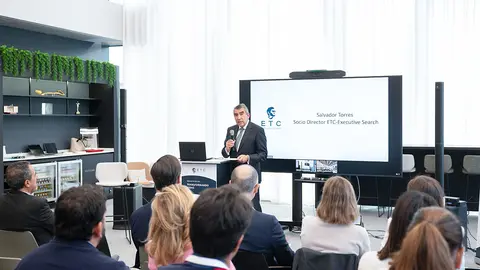Salvador Torres: ‘Well-understood charity begins with oneself and others, and is something inherent to the person’
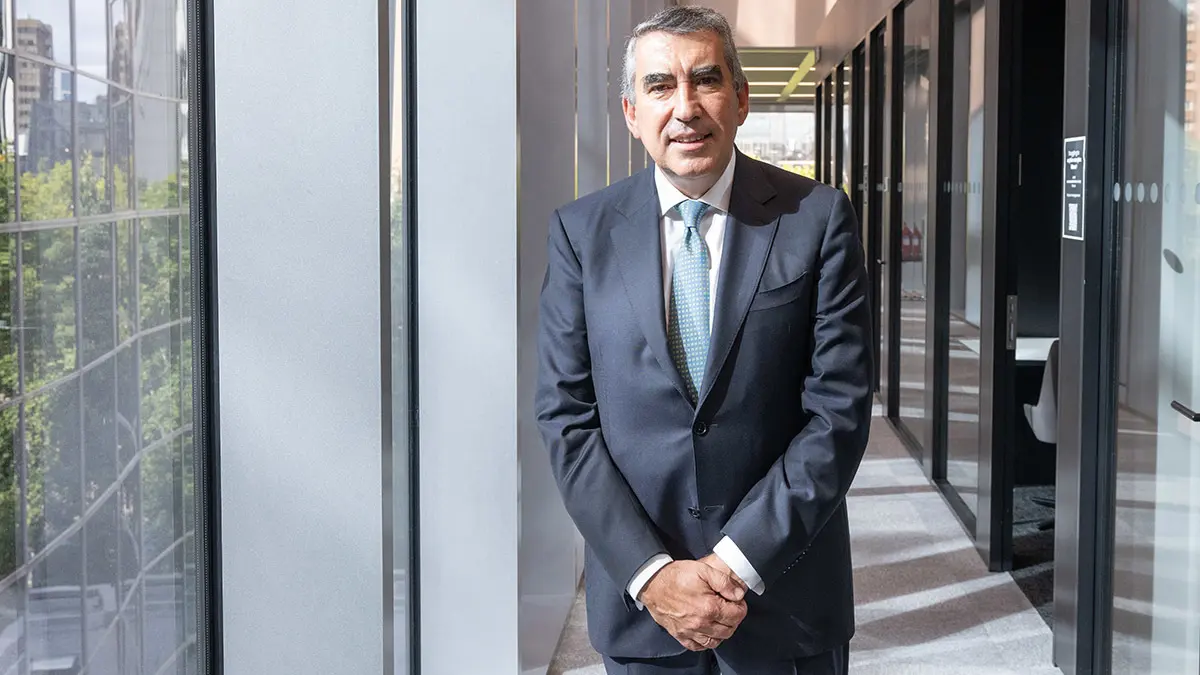
The auditorium of the technology company Celonis in Madrid hosted the event ‘Transforming Lives’ to present the projects of five important NGOs working to improve the situation of hundreds of thousands of needy people suffering from poverty, hunger, lack of educational opportunities and social exclusion in Spain and other parts of the world, with a view to raising funds from important companies to help their work.
The event was organised by ETC-Executive Search, a platform dedicated to helping the most vulnerable, and served to present initiatives presented by the heads of these NGOs to the most important companies in the country, seeking to generate an important link between the business sector and social initiatives with a view to eradicating poverty, hunger, lack of educational opportunities and exclusion in Spain and other parts of the world.
Atalayar had the opportunity to talk about this with Salvador Torres, managing partner and founder of ETC-Executive Search.
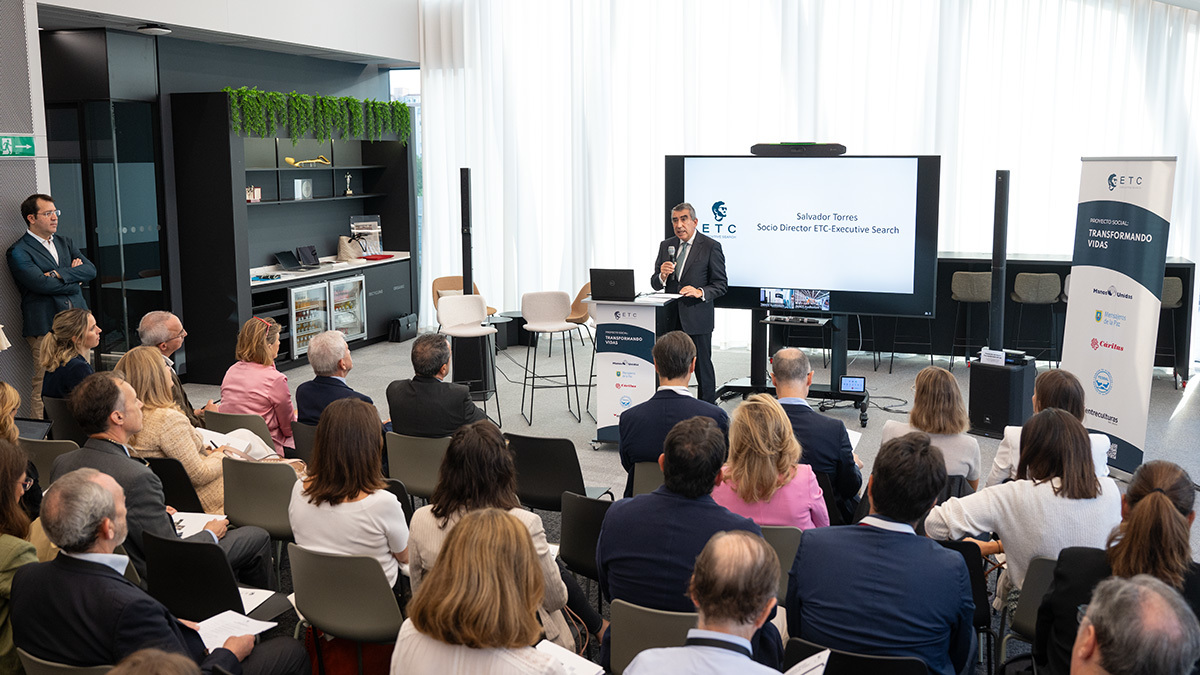
You have organised the ‘Transforming Lives’ conference where the response has been very important and where it is made clear that, despite all the hardships, the crisis, the problems, there is a margin of solidarity and of facing real problems in the world with those people, NGOs, who are dedicated to working for the less fortunate.
This is how it is. At ETC, as a company that manages the executive talent of companies, fundamentally in the world of search, boards and senior management consultancy, we believe that, in our approach to executives, we are increasingly finding a need in companies, a need in society and a different type of leadership in the type of executives that we are also looking for. It is becoming a more committed leadership.
We have been fortunate to have with us five of the Non-Governmental Organisations, NGOs, which, from our point of view, are courageous, hard-working, credible and are associations that today are very much involved in working for the most disadvantaged, for the most vulnerable, for poverty.
That is why we wanted to bring together these five organisations together with two speakers who have talked to us about issues that I believe are vital today from the point of view of how people should behave, what their social outlook should be, and how to engage society more closely with business society.
And, for this reason, we have brought together these five associations and we have called Human Resources directors, Corporate Social Responsibility directors and CEOs of large companies to try to ensure that not only through the donations that companies can make and employees can make, there is a real participation of volunteering, of involvement of these employees through their active participation, whether in relation to the company itself or to what may be the social relationship, so that at a given moment they can participate and take part in it.
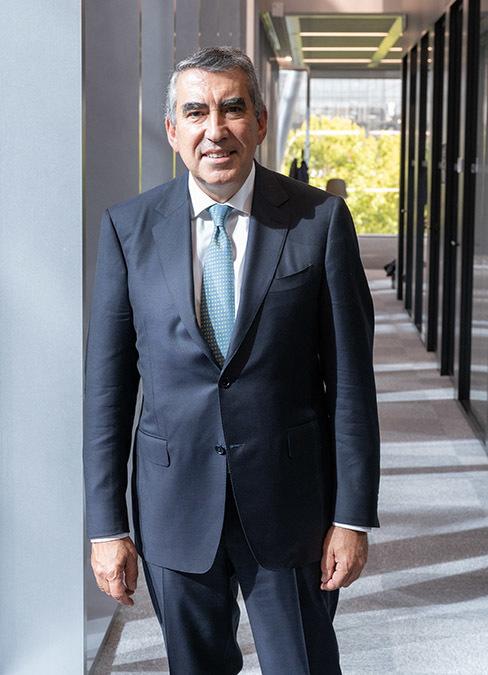
We have seen projects that have been presented to try to get these companies to finance them abroad, but also in Spain. In this sense, there is also an internal solidarity that is also transferred abroad. These organisations, Entreculturas, Cáritas, the Spanish Federation of Food Banks (FESBAL), Mensajeros de la Paz, with Father Ángel, and Manos Unidas are first-rate institutions that work both abroad and in Spain.
We have been working for some time with each of these organisations because what we have asked them to do is to see how we can choose three simple projects from among the projects that they could propose, three projects that are viable so that employees can participate on a voluntary basis, regardless of whether or not they want to make a donation, whether they are employees or companies.
Of course, the issue always starts at home and that is why we wanted part of the projects to be projects at a national level, at a local level, but, of course, there are also important organisations and we know what kind of social exclusion there may be outside this country.
Let us remember a fundamental fact, which I gave and which has just been presented, which is that almost 27% of the population is at risk of exclusion in Spain. I am not even talking about countries where poverty really increases this percentage. That is why, of course, we have to think about Spain and, of course, we must not stop looking outside the country.
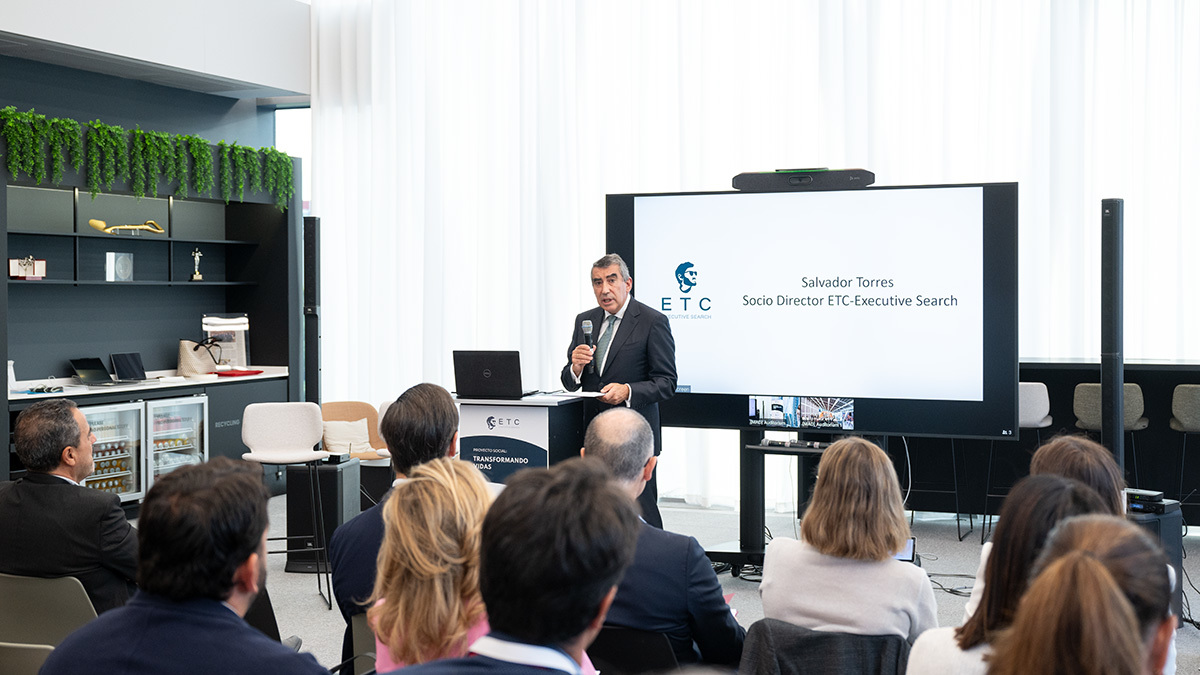
What objectives are you pursuing with this conference? What would you be satisfied with? What have you achieved?
I think it is important just to have raised awareness and to have been able to unite these five associations, which is not easy, and to have been able to have a good convening power with regard to companies so that they become involved. Firstly, to know first-hand, through the presidents, what they have been, what they are doing and what they have been doing for some time. Secondly, so that they can see three projects with which they can collaborate. Thirdly, so that there can be a dialogue between them at a given moment in the times that we have been able to have.
And the objective, without a doubt, is that we have presented them with a file on each of the associations or organisations together with the three projects so that they can try to sponsor, to try to choose, which are the projects that from their point of view could be attractive for incorporation into the company and that the company can participate in them.
Finally, we listened to the head of Entreculturas tell an anecdote, which defines the feelings of many disadvantaged people: ‘I am not going to thank you because you are doing what you have to do’. In this sense, we should not think so much about charity and instead think that it is the obligation of the most developed to care for the least favoured.
I would not separate charity from care and need. I believe that charity is intrinsic to what the individual may be at any given moment and is undoubtedly a value.
I believe that the conference given by Father José María Rodríguez Olaizola was very clear. The social gaze can be seen in very different ways and, logically, we have to focus on this. And, of course, we all have part of that responsibility, but charity, properly understood, begins with oneself and with others, and is something intrinsic and inherent to the person himself.
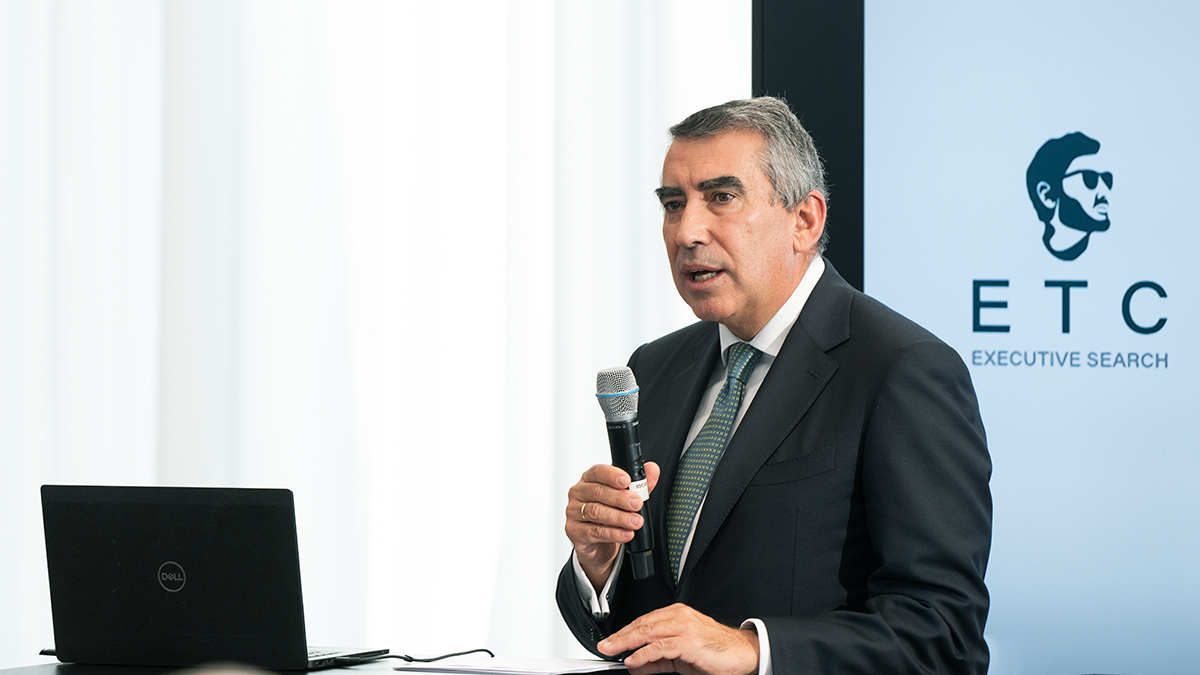
Companies have more possibilities, but real solidarity lies in society, in individuals, in what each of us can contribute. For example, in the case of El Corte Inglés, when the food plan collects food for people, each one of us can also be the protagonists of a day like this.
This is certainly not intended to be a business-only event. When we talk fundamentally about companies, it is because companies are full of individuals who work, but who also have their conscience, who also have their heart, who also have their attitude, who also have their way of thinking and acting.
For us it is a stage, an area of what a person can be, but, without a doubt, what we also try to do is to raise awareness, to try to make the individual aware of the importance that they can represent because, in the end, we are all the same. We all have to try to help, the favoured ones to the less favoured ones, and it is a matter of attitude. It is not a question of time, it is a question of action and knowing how to be and how to be.


